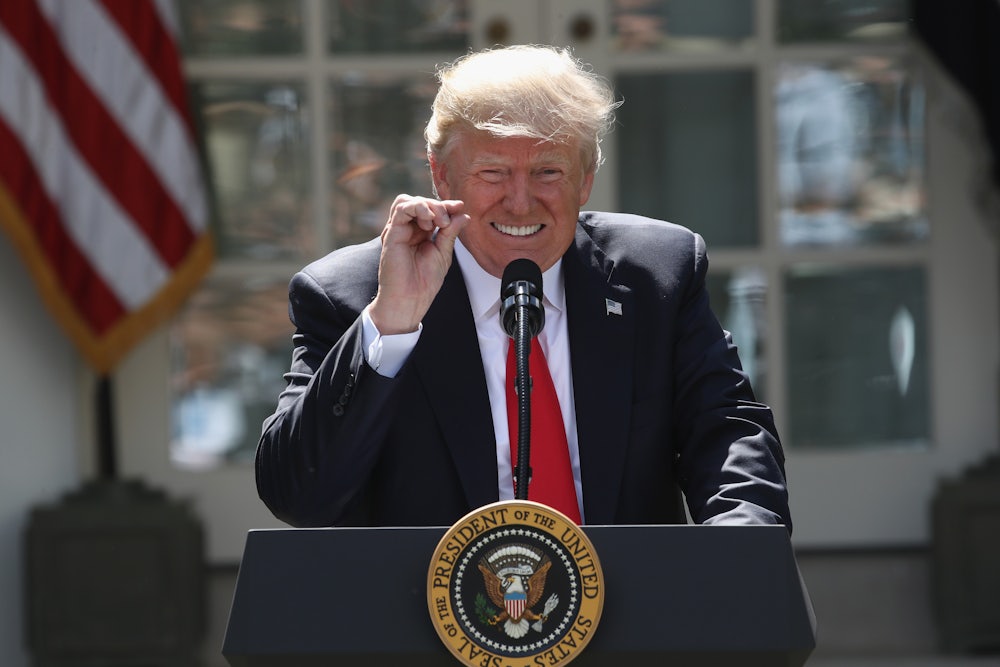President Donald Trump made a decision today that he likely wouldn’t have made if he accepted the scientific fact that humans cause climate change, and that climate change is harmful to the environment and human civilization. In the White House Rose Garden, he told the world that he would withdraw the U.S. from the Paris climate accord because it was a “bad deal” for the country.
Not once in his lengthy speech did Trump mention the dangers posed by climate change, or what the U.S. would do to reduce carbon emissions and help prevent sea-level rise, more extreme weather, and widespread species die-offs. That’s because Trump doesn’t think the problem exists, or refuses to admit that he does. Here’s an exchange from a White House pool gaggle yesterday:
This is almost physically painful to read pic.twitter.com/9S1OKVauFi
— Emily Atkin (@emorwee) June 1, 2017
Republicans who openly accept the science of climate change don’t take such an extreme view on the Paris agreement. John McCain and Mitt Romney, for example, did not want Trump to bail on the deal. But many Republicans don’t think the problem exists, and thus opposed it. EPA Administrator Scott Pruitt, Energy Department Secretary Rick Perry, Senate Majority Leader Mitch McConnell—all climate deniers who encouraged Trump to quit Paris.
Make no mistake: What happened today happened because of their science denial. Trump doesn’t think climate change is a problem, therefore he didn’t even consider the consequences of climate inaction when he was weighing whether to stay or leave the deal. Instead, he was only making his decision based on the potential diplomatic consequences of withdrawal, how he would look to his base, and whether the deal would cause coal plants to close.
There are consequences to voting climate deniers into office. Polls show that while most people care about climate change, they don’t consider it enough of a priority to decide their vote. Fortunately, Trump’s path for withdrawal from the Paris agreement will take at least four years to complete—meaning the future of the accord, and therefore climate change, is going to be on the ballot in 2020. Maybe by then, people will realize the stakes of climate change and vote for someone who acknowledges its existence.
Paris entered into force 11/4/16. Earliest Trump can complete exit = 11/4/20 I.E THE DAY AFTER THE '20 ELECTION. Paris will be on the ballot pic.twitter.com/UKSDd1viLp
— Brian Deese (@BrianCDeese) June 1, 2017
